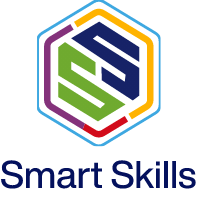Courses Offered
APTITUDE AND BEHAVIORAL TRAINING








- Ratio and Proportion
- Time and Work
- Pipes and Cistern
- Percentage
- profit and Loss
- Discount
- Simple interest and Compound Interest
- Average
- Time and Distance
- Boat and stream
- Number Series
- Missing Numbers
- coding and decoding
- letter series
- Analogy
- classifications
- Math operation
- Venn diagram
- Syllogism
- Mirror image and Paper cut
- Fundamentals
- Verb and Tense
- Conjuction
- Noun
- Pronoun, preposition ,article
- 100 golden rules of Grammar

Arvind Shekar
ORACLE PL SQL
Lorem ipsum dolor sit amet, consetetur sadipscing elitr, sed diam nonumy eirmod tempor invidunt ut labore et dolore magna aliquyam erat, sed diam voluptua. At vero eos et accusam et justo duo dolores et ea rebum. Stet clita kasd gubergren, no
Previously Worked for

CORE JAVA PROGRAMMING LANGUAGE
- Introduction to Java
- History of java
- Comparison with C and C++
- Features of Java
- JDK, JRE, JVM overview
- JDK Directory Structure
- Basic Java Program through command prompt
- Download and install JDK/JRE
- Set Environment variables
- Download Eclipse IDE
- Coding standards followed in Eclipse
- Naming standards followed in Eclipse
- Features of Eclipse IDE
- Introduction to packages
- Need for packages
- package declaration in Java
- Import statement in Java
- static import in java
- Resolving name clashes in packages
- Classes and Objects
- Defining a class, instance variable and method in Java
- Defining a class, variable and method in Java
- Creating objects out of a class
- Method calls via object references
- Interfaces and Abstract classes
- Abstract and non-abstract methods
- extends and implements keywords in Java
- Types of inheritance
- Super class and Sub class
- this keyword, super keyword in Java for inheritance
- Concrete classes in Java
- Aggregation and Association
- Compile time polymorphism –Overloading of methods
- Run time polymorphism –Overriding of methods
- Method Overriding rules and method overloading rules
- Introduction to Object class and it’s methods
- Protection of data
- Java Bean, POJO
- Getters/Setters
- Memory management in Java
- Heap
- Stack
- Garbage Collection
- Primitive Data types
- Data type Declarations
- Data type Ranges and its calculation
- Memory allocation for each Data type
- Variable Names Conventions
- Numeric Literals, Character Literals
- String Literals
- Arrays
- Array of Object References
- Enumerated Data types
- Non-Primitive Data types
- Expressions in Java
- Assignment Operator
- Arithmetic Operators
- Relational Operators
- Logical Operators
- Conditional Operators
- Operator Precedence
- Implicit Type Conversions
- Upcasting and downcasting
- Strict typing
- Type conversion
- Flowchart for conditional statements
- If statement
- If-else statement
- If-else-if statement
- Switch statement
- String in switch case
- For loop
- While loop
- Do-while loop
- Unconditional Control Statements
- break statement
- labelled break statement
- return statement
- continue statement
- Methods to get Primitive data types
- match method
- delimiter method
- findInLine method
- skip,close method
- useRadix method
- useLocale method
- IOException method
- Launching and debugging java code
- Breakpoints
- Debug perspective
- Stepping commands
- Trace point,Trigger point
- Breakpoints grouping
- Breakpoints sorting
- Role of access modifiers
- Private access modifier
- Role of private constructor
- Default access modifier
- Protected access modifier
- Public access modifier
- Access Modifier with Method Overriding
- variable
- variable memory storage
- Static variable
- Local variable
- Global/Instance Variable
- variable widening
- variable narrowing
- Constructor
- Default constructor
- Non-arg based constructor
- Parameterised constructor
- Difference between Constructor and Method
- Constructor chaining
- this and super method
- constructor overloading
- Singleton class
- Normal class vs singleton class
- Use of Singleton class
- JDBC Using Model Object and Singleton Class
- Collections.singleton method in Java
- Private Constructors and Singleton Classes in Java
- Java Singleton Design Pattern Practices
- String data type
- String declaration
- String Tokenizer
- String methods
- String types
- String memory allocation
- Manipulations in string
- Interfaces and classes in String
- Declaration
- Instantiation
- Initialization of Java Array
- Single dimensional Array
- Multi-dimensional Array
- Anonymous Array
- Cloning an Array
- Need of Wrapper classes
- Autoboxing and Unboxing
- Primitive Wrapper Classes
- Utility methods of Wrapper classes
- valueOf and xxxValue methods
- parseXxx and toString method
- Need for Generics
- How Generics works in Java
- Types of Generics
- Generic Type Class or Interface
- Generic Type Method or Constructor
- Generic Type Arrays
- Generics with Wildcards
- Unbounded Wildcards
- Bounded Wildcards
- Java Collection Framework
- Hierarchy of Collection Framework
- Collection interface
- Iterator interface
- Methods of collection interface
- List
- Set
- Queue
- Collections utility class
- Introduction to Map interface
- Methods in Map
- Iterating a Map
- Map hierarchy
- Sorted Map
- LinkedHashMap
- TreeMap
- HashMap
- HashTable
- Exception types
- Usage of Try
- Usage of Catch
- Usage of Throw
- Usage of Throws
- Usage of Finally
- Built-in Exceptions,
- Creating own Exception classes
- Regular expression
- MatchResult interface
- Matcher class
- Pattern class
- PatternSyntaxException class
- Regex Quantifiers
- Regular Expression Character classes
- Regex Metacharacters
- File Handling in Java
- Stream
- Java File Methods
- File Operations in Java
- File reader
- File writer
- Buffered Reader
- File permissions
- Concepts of Thread
- Thread life cycle
- Creating threads using Thread class and Runnable interface
- Synchronization
- Thread priorities
- Inter Thread communication.
- Autoboxing
- Generics
- Enhanced for loop
- Varargs
- Enums
- Static imports
- StringBuilder
- Metadata
- String in Switch Expression
- Underscores Between Digits in Numeric Literals.
- Integral Types as Binary Literals.
- Handling multiple exceptions in a single catch block.
- Try-with-resources Statement.
- Automatic Type Inference in Generic object instantiation.
- JVM Memory Structure
- Heap area
- Method Area
- JVM Stacks
- Native method Stacks
- Program counter (PC) registers
- Working of Garbage Collector
- Memory leaks in Java
- Check the given number is odd or not
- Check the given number is even or not
- Print first 100 odd numbers
- Print first 100 even numbers
- Count the number of even numbers from 1to 100
- Count the number of odd numbers from 1to 100
- Find the factorial of a given number
- Generating fibbonacci series
- Find the reverse of the given number
- Check the given number is palindrome or not
- Check the given number is armstrong or not
- Find the sum of the digits in a number
- Find the number of digits in a number
- ind the product of digits in a number
Coding Standards for Classes
- Coding Standards for
InterfaceCoding
Standards for
Methods - Coding Standards for Variables
- Coding Standards for Constants
- Java Bean Coding Standards
- Getter Methods
- Setter Methods
CORE AND ADVANCED PYTHON PROGRAMMING LANGUAGE
- Introduction to Python
History of Python
- Comparison with C , C++,Java and Python
- Features of Python
- Python Compilation
- Basic python program through command prompt
- Python 1x feature
- Python 2X features
- Python 2x end life
- Python 3X features
- Python 3.8.2
Download and install Python Download
- Set Environment variables
- Download Pycharm IDE
- Coding standards followed in Pycharm
- Naming standards followed in Pycharm
- Features of Pycharm IDE
- breakpoint() Built-In.
- Data Classes.
- Customization of Module Attributes.
- Typing Enhancements.
- Timing Precision.
- Context Variables
- Importing Data Files
- Interactive mode
- Using Script mode
- Single line comments using “#”
- Multi line comments using “”” “””
Identifiers
- Keywords
- Operators
- Delimiters
- iterals
Conditional statement keywords
- Control statement keywords
- Function keywords
- Exception keywords
- Logical operator keywords
- LexicalDefinitions in Python Identifiers
- Best Practicesin Identifiersin Python
- Testing the Validity of Identifiers in Python
- Reserved ClassesofPython Identifiers
- Leading Double Underscores ( *)
- Leading and Trailing Double Underscores ( * )
- String literals
- Numeric literals
- Boolean literals
- Collection literals
- Special literals
- Creating Variables
- Variable Names
- Assign Value to Multiple Variables
- Output Variables
- Global Variables
- The global Keyword
- Text Type(str)
- Numeric Type(int, float, complex)
- Sequence Type(list, tuple, range)
- Mapping Type(dict)
- Set Types(set, frozenset)
- Boolean Type(bool)
- Binary Types(bytes, bytearray, memoryview)
- Number type convertion
- int (signed integers)
long (long integers )
- float (floating point real values)
- complex (complex numbers)
Implicit Type Conversion
Explicit Type Conversion
- Convert to Int
- Convert to float
- Convert to Complex
- Convert to String
- Convert to Hexadecimal
- Convert to Octal
- Convert to Binary
- Convert to List
- Convert to Set
- Convert to Tuple.
- Arithmetic operators
- Comparison operators
- Logical operators
- Bitwise operators
- Assignment operators
- Special operators
- Identity operators
- Membership operators
- String datatype
- Manipulations in string
- String Tokenizer
- String methods
- String types
- String memory allocation
- Boolean Values
- Boolean Strings
- Boolean and logical operators
Iterating Through an Iterator in Python
- Iterator vs Iterable
- ForLoop
- NetedForLoop
- How for loop actually works?
- Building Your Own Iterator in Python
- Infinite Iterators
- What is PIP
- Install PIP
- Download a Package
Listing Installed Packages with pip
- Using a Package
- Package Information with pip show
- Find Packages
- Remove a Package
- List Packages
- Create a list
- List Index, List Methods
- Negative indexing
- Slice lists in Python
- Delete and remove from List
Create a Tuple
- Indexing
- Negative Indexing
- Slicing
Changing a Tuple
- Deleting a Tuple
- Tuple Methods
- Other Tuple Operations
- Set
- Access Items
- Change Items
- Add Items
- Get the Length of a Set
- Remove Item
- Join Two Sets
- The set() Constructor
- Set Methods
- Python frozenset() Function
- Accessing Values in Dictionary
- Updating Dictionary
- Delete Dictionary Elements
- Properties of Dictionary Keys
- Built-in Dictionary Functions & Methods
- Other Dictionary Operations
- Iterating Through a Dictionary
Flowchart for conditional statements
- If statement
- If-else statement
- If-else-if statement
- For loops
- While loops
- Jump statements
- Exception types
- Usage of Try
- Usage of except
- Usage of Finally
- Usage of BaseException
- Built-in Exceptions
- Raising an Exceptions
- Concrete exceptions
- User-Defined Exceptions
File Handling in Python
Stream
- Python File Methods
- File Operations in Python
- File reader
- File writer
- Bufffered Reader
- File permissions
- Python – Regular Expressions
- The match Function
- The search Function
- Matching Versus Searching
- Search and Replace
- Regular Expression Modifiers: Option Flags
- Regular Expression Patterns
- Character classes
- Special Character Classes
- Repetition Cases
- Non greedy repetition
- Grouping with Parentheses
- Backreferences
Alternatives
Anchors
- Special Syntax with Parentheses
- Oops in Python
- Python Classes
- Object Instances
- Defining and Working with Methods
- Differences between Procedural and Object Oriented Programming
- Procedural Programming
- Languages used in Procedural Programming
- Object.
Class.
Method.
Inheritance7.
- Polymorphism
- Data Abstraction.
- Encapsulation.
- Check the given number is odd or not
- Check the given number is even or not
- Print first 100 odd numbers
- Print first 100 even numbers
- Count the number of even numbers from 1to 100
- Count the number of odd numbers from 1to 100
- Find the factorial of a given number
- Generating fibbonacci series
- Find the reverse of the given number
- Check the given number is palindrome or not
- Check the given number is armstrong or not
- Find the sum of the digits in a number
- Find the number of digits in a number
- Find the product of digits in a number
- Find the reverse of the string
- Check the given string is palindrome or not
- Print each word’s first letter of the given string in capital number
- Check two strings are equal
- Check two strings are Anagram or not
TECHNICAL- DATABASE TRAINING
Introduction to SQL
Table creation
- SQL Insert
SQL Update
- Applying Constraints
- SQL Syntax
- SQL Data Types
- SQL Operators
- SQL Database
- SQL Select
- SQL Clauses
- SQL Delete
- SQL Joins
- SQL Keys
- Establishing connection
- Running query
- Extracting Result
TECHNICAL- SOFTWARE MANUAL TRAINING
- Introduction of Software Testing
- What is Software testing
- What is Quality
- Importance of testing
- Tools used for Testing
- Manual and Automation Testing
- Principles of Software Testing
- SDLC and SDLC Phases
- Requirements and Analysis
- Design
- Development
- esting
- Deployment
- Operation and Maintenance
- Waterfall Model
- V Model
- Spiral Model
- Iterative Model
- Agile Model
- One Tier Architectures
- Two Tier Architectures
- Three Tier Architecture
- N-Tier Architecture
- What is STLC?
- Entry and Exit Criteria
- STLC Phases
- Requirement Analysis
- Test Planning
- Test Design
Test Execution
- Sign Off
Test Scenario Preparation
- Test Case Preparation
- Test Environment and Test Data Preparation
- Requirement Traceability Matrix
- Testing Techniques used in Levels of Testing
- White Box Testing Technique
- Black Box Testing Technique
- Unit Testing
- Integration Testing
- System Testing
- Functional Testing
- Non Functional Testing
- User Acceptance Testing
- Functional Testing
- White Box Testing
- Black Box Testing
- Positive Testing
- Negative Testing
- Beta Testing
- Live Environment Testing
- Smoke Testing
- Sanity Testing
- Regression Testing
- Formal Testing
- Informal Testing
- Monkey Testing
- Re-Testing
- Risk Based Testing
- Non Functional Testing
- Performance Testing
- Load/Stress Testing
- Usability Testing
- Accessibility Testing
- Security Testing
- Test Case Productive Prepration
- Test Execution Summary
- Test Case Coverage
- Defect Acceptance
- Defect Rejection
Test Efficiency
- Effort Variance
- Schedule Variance
- Forward Traceability
- Backward Traceability
- Bi-Directional Traceability
- Examples Of RTM
- Test Coverage
- Equivalence Case Partition
- State Transition Technique
- Decision Table Technique
- Boundary Value Analysis
- Error Guessing Technique
- Adhoc Testing
- Difference between Defect and Bug
- Defect Life Cycle
- Defect Tacking Tools
- Create a Bug Report
- Raise a Bug in JIRA
- Severity & Priority
- Agile Methodologies Overview
- Agile Scrum
- Agile ceremonies
- Agile artifacts
Kanban
Adaptive Project Framework (APF)
- Extreme Project Management (XPM)
- Why we go for Agile?
- Agile Manifestos and Scrum
- Roles involved in Agile
- Terminologies used in Agile
- Sprint Grooming
- Sprint Planning
Daily Scrum Meeting
- Sprint Review
- Sprint Review
- Sprint Retrospective
- Test plan:Releases and Builds
- Requirements
- Creating Testcases
- Creating and using parameters
- Using data query
- Executing test runs and submitting defects
- Complex scenario
- Setting up qTest explorer(web and desktop)
- using qTest Explorer(Web and Desktop
- Introduction To JIRA
- Test Management In JIRA
- Advanced Search And Introduction To JQL (JIRA Query Language)
- Generating Reports In JIRA
- Introduction To JIRA Agile
- Create an issue in JIRA
- Sub-Task
WorkFlows
Plug-ins in JIRA
- JIRA Agile
- Creating issue in Agile
How to create an Epic in Agile
- Use of Clone and Link in JIRA
- Reports in JIRA
Kanban Board and Managing issues
- JIRA Scrum Vs JIRA Kanban
- Easy bug tracking tool
- Search and advanced search features
- Full history of issue updates and status changes
- Project and issues with subtasks
- Git and SVN built-in
- Gantt Charts and Burndown charts
- Wikis and Watchlists
- Native mobile apps
- Kanban-style boards for visual workflow
- Travel Domain Explanation
- Ecommerce Domain Explanation
- Banking Domain Explanation
- Insurance Domain Explanation
- Healthcare Domain Explanation
- Educational Domain Explanation
- Manual Testing Interview Questions Discussion
- Real-Time Interview Questions and Answers Discussion
- Agile Testing Interview Questions Discussion
- Programming Interview Questions Discussion
- Project explanation
- Challenges faced by tester
- Roles and responsibilities of a tester
- Day to day activities of a tester
- Your resume is arguably the most critical part of the modern job application process.
- • A well-organized, tailored resume will increase your chances of landing an interview
while a poorly written resume could get lost in the sea of applicants. - We will help you to prepare your impressive resume with best specification of your skill
set
- Mock interviews by Greens technologies gives you the platform to prepare, practice and
experience the real-life job interview. - • Familiarizing yourself with the interview environment beforehand in a relaxed and stressfree environment gives you an edge over your peers.
- Our mock interviews will be conducted by industry experts with an average experience of
5+ years. So you’re sure to improve your chances of getting hired!

Arvind Shekar
ORACLE PL SQL
Lorem ipsum dolor sit amet, consetetur sadipscing elitr, sed diam nonumy eirmod tempor invidunt ut labore et dolore magna aliquyam erat, sed diam voluptua. At vero eos et accusam et justo duo dolores et ea rebum. Stet clita kasd gubergren, no
Previously Worked for



